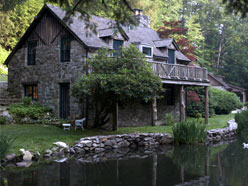
Generation X buyers of cottages, cabins and chalets across Canada outnumber Baby Boomers by almost two to one, according to a Royal LePage report.
Sixty-five percent of real estate advisors polled indicated that potential purchasers were considering their retirement needs in deciding to buy a recreational property, while a significant number of respondents (88%) said potential purchasers identified desired lifestyle and vacationing as their main purpose. Just under half of respondents (49%) said clients wanted a recreational property as an investment and a little over a third (37%) indicated that low interest rates were a deciding factor.
The family status of the typical recreational property buyer is a couple with children, according to 76% of survey respondents. When asked about the most prevalent age range of current buyers, 63% of respondents identified Gen Xers (36 to 51 years old), almost double the 33% who identified Baby Boomers (52 to 70 years old).
Read: Trends in foreign ownership of Canadian real estate
Almost 95% of respondents stated that foreign buyers were responsible for 10% or less of recreational property transactions. When asked to identify where foreign buyer activity originates from, the most common answer was North America (79%), with the majority (64%) of those who specified a country of origin stating purchasers were Americans.
Factors driving international interest: quality of living in Canada (30%), geography (27%) and the low Canadian dollar (27%).
Regional trends
British Columbia saw year-over-year (May 2015/2016) price appreciation, and Royal LePage expects sales activity to increase throughout the remainder of the year. Respondents cited demand from retirees as a major factor driving the market.
In Alberta, sentiments were mixed, with respondents generally expecting continued softness in both price and sales activity in the coming year.
In Saskatchewan, recreational property prices were up slightly compared to last year, with inventory and demand levels remaining stable.
Read: Almost 80% of millennials say homeownership attainable
Meanwhile, in Manitoba, the recreational property market is recording slight softness, with inventory levels outpacing demand.
In Ontario slight increases over last year were reported in both price and sales volumes across the recreational property communities studied, with inventory levels slightly down in most markets. Looking ahead, Ontario’s recreational property markets are expected to be active for the remainder of 2016.
Similarly in Quebec, most reported that recreational property prices and activity levels have been showing slight increases this year over last, with sales volumes projected to remain healthy for the remainder of the year.
Atlantic Canada recorded that regional market conditions were mixed. Respondents in Nova Scotia reported slight year-over-year price and sales activity increases, while recreational property markets in New Brunswick remained stable on both fronts. In contrast, Newfoundland’s recreational property market reported slight decreases in prices and sales when compared to the same period last year. In light of the negative economic impacts of the oil industry’s downturn, this softness is expected to continue for the remainder of 2016, as buyers and sellers wait on the sidelines amid market uncertainty.